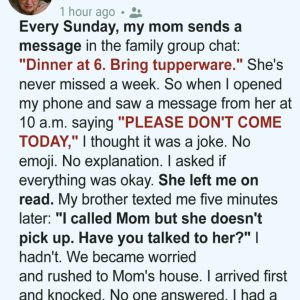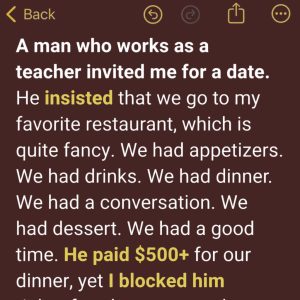After my grandmother passed, the house, the savings, even her old car were left to me. It wasn’t some massive fortune, but it was enough to finally feel secure. When I told my fiancée, Claire, her reaction surprised me.
She didn’t hug me or talk about memories of Grandma. Instead, her eyes lit up and she said, almost breathlessly, “We can finally have a real wedding.”
That caught me off guard. We’d always agreed on something small — a courthouse ceremony, close friends, maybe dinner afterward. I reminded her of that. She smiled, but it didn’t reach her eyes.
Over the next few days, she started sending venue links. Ballrooms. Destination resorts. Dress designers I’d never heard of. Each message ended with, “We can afford it now.”
I told her no.
That night, she stared at me across the kitchen table, perfectly calm, and said, “If you don’t agree, I don’t know if this marriage will work.”
The room went quiet. I realized, in that moment, that this wasn’t about a wedding. It was about what my grandmother had left me — and what Claire felt entitled to take.
I didn’t argue. I didn’t raise my voice. I just asked one simple question:
“Would you still want to marry me if there was no money?”
She opened her mouth, then closed it.
Her silence told me everything.
I ended the engagement the next morning. It hurt — more than I expected — but it also felt clean, like stepping out of a room I hadn’t realized was filling with smoke.
A few weeks later, I used part of the inheritance to fix up my grandmother’s old house. I framed one of her photos in the living room — the one where she’s smiling softly, like she knows a secret.
The rest, I saved. Not for a wedding meant to impress strangers — but for a future built on respect.
And every time I walk through that front door, I feel like she’s still watching over me, proud that I chose myself.





